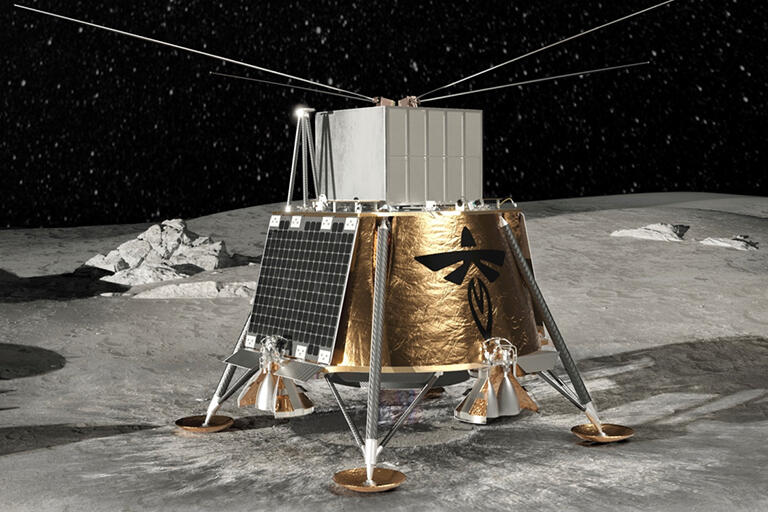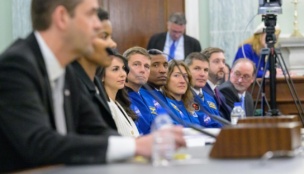Bipartisan leaders of the subcommittees that oversee NASA and the Energy Department introduced a bill last week that would remove barriers for collaboration between the two agencies.
Reps. Eric Sorensen (D-IL), ranking member of the House space and aeronautics subcommittee, and Brandon Williams (R-NY), chairman of the House energy subcommittee, said the bill will allow for the two agencies to work together in many areas of shared interest.
This is the first bill that Sorensen has introduced in the House since he became ranking member on Feb. 9.
A codified relationship: Right now, NASA and the DOE need to ask lawmakers permission to collaborate on new research projects. The two agencies’ common goals and history of working together on spacecraft propulsion and power systems, though, reveal a “natural relationship” between the two, Sorensen said in a release.
The DOE and NASA Interagency Research Coordination Act would allow the agencies to forgo Congressional approvals to work together on research projects that support agency initiatives, including designing nuclear thermal propulsion systems, studying the health impacts of radiation exposure, and learning about dark energy and dark matter.
“Together, the DOE and NASA will engage directly on R&D for propulsion systems, fundamental high-energy physics, quantum network infrastructure, and more,” said Williams.
Looking ahead: The lawmakers asked NASA and the DOE to report back after two years on specific projects where the collaboration was helpful, but it’s unclear if the legislation will even make it that far.
Sorensen and Williams introduced the bill on Thursday. As of right now, there’s no update on whether this bill, as well as an additional bill that would similarly lift barriers to collaboration between the DOE and National Science Foundation, will be considered in the chamber, or whether it might be rolled into a broader piece of legislation.
+ Want more space policy news? Be sure to sign up for Polaris, our policy-focused weekly newsletter launching Tuesday.




